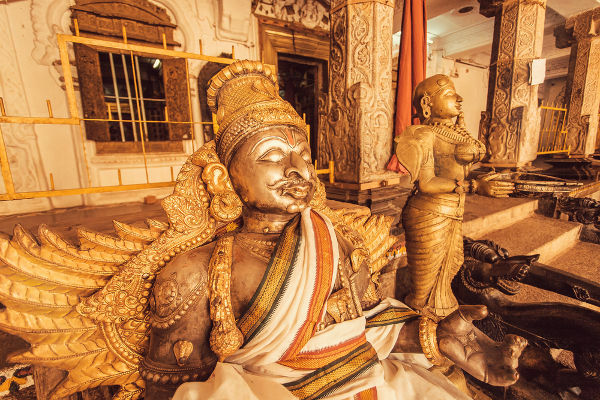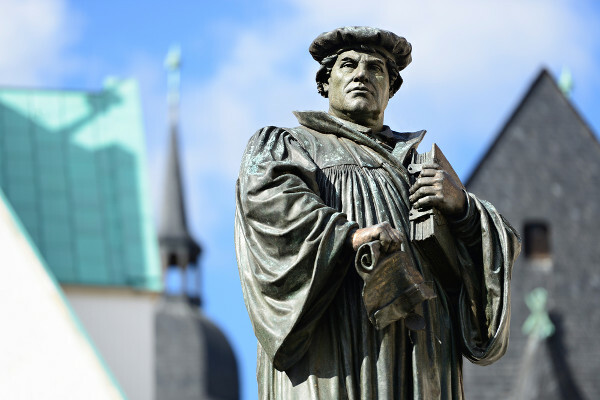O laic State appeared with the republicanism in order to ensure that there was equality between all citizens. After several wars and conflicts over religion, people began to see the need for separate state decisions from the Church, as it could not serve as a basis for justifying government actions.
The junction between State and Church was abandoned with the way of governing of the Ancien Regime by most countries, because the absolute monarchs before, they needed the supposed divine blessing to justify their actions. Republicanism and the dissolution of state power in Parliament removed the weight of government actions of religion and placed it entirely in the people, in the competence of public agents and within the scope of the State.
After all, what is the secular state?
laic State or, in the religious sphere, secular state is one who does not adopt official religion, does not interfere in religious affairs - unless they are directly related to legal issues - and does not allow itself to be influenced by any unilateral religious bias, that is, it is regardless of any religion.
The word secular is also used to designate something that is secular. Secular comes from Latin saeculare, which means mundane, that is, what is of the physical world and "not belonging to God".
In a secular state, religious practice is not prohibited, on the contrary, people are protected by Constitution to freely manifest their beliefs and cults, provided that the principle that the religion belongs to private life and cannot serve as a parameter for a public official in exercise of the to owe.
Do not stop now... There's more after the advertising ;)
In a secular state, no government or state action justified by religious matters is allowed.. Much less is it admitted that religious matters assume the character of law to guarantee the hegemony of only one religious group. In the context of a secular State, it is understood that any religious vision of the world must be respected and that the freedom of worship and belief must be guaranteed.
To make this possible, there is a Constitution and laws that guarantee worship and respect all religions. Likewise, those who refrain from choosing a religious belief, preferring to define themselves as atheists or agnostics, must be respected.
Given the fact that the State must respect all religions, he cannot favor one over another. In this way, it is forbidden for the government or public agents of a secular State to let their faith influence their decisions as public persons.
It is understood that religion is something personal, that favoring some aspects over others can lead to conflicts and that the State, as a body that must guarantee equality, cannot take part in such conflicts unless in defense of plurality and equality.
Read too: secular state x religious state
Types of State
Next, we'll comment on the types of states and their relationship to religion, we will also discuss this relationship in specific countries such as Germany and India.
confessional state
confessional state is the one that adopt an official religion. this adopted religion will not have unrestricted and absolute power and it may not be as strongly linked to government decisions and state policies. However, the mere fact of adopting one official religion can exclude the importance of the others.
theocratic state
Theocracies or theocratic states are those in which there is a official religion adopted and the Legislative and Judiciary systems are under tutelage of that religion. The current theocracies are countries subject to Islamic laws (such as Iran) and the Vatican, under the domain of Catholic church.
atheist state
An atheist state is one that fight against religion in its interior for not seeing in religious practices something that reinforces the ideology and posture of such State. Examples of atheist states are the socialist countries of the 20th century, such as the Soviet Union, a China and the North Korea. All the countries mentioned guarantee, today, religious freedom, and Russia (member of the extinct Soviet Union) is currently a secular country.
Read too: Democracy - concept, origin, types and examples
Relationship between Church and State in Germany
Germany was never, in fact, totally secular, unlike other modern Western republics and national states. Otto von Bismarck, the chancellor who carried out the process of unification of Germany in the 19th century, took a series of measures aimed at separate state domains from churches, but these were canceled in 1919 by the Weimar Republic.
The Weimar Republic was the republican period that Germany lived between 1919 and 1933, governed by a democratic and constitutional republican system. In the understanding of the team of jurists, political scientists and economists who participated in the Constituent Assembly (between them, was sociologist Max Weber), the rapprochement between State and Church was justifiable due to the historical participation of Protestantism in the German governments.
the rise of government Nazi in Germany, which ended the Weimar Republic in 1933, brought the religious domains closer together (Christians) of the State. One of the elements by which hitler justified the plans of persecution of jews and the establishment of what he called the pure race was the Christian religion. According to the Nazi leader, only the Aryan race (white and from the Germanic peoples), who were equally Christian, would have the right to inhabit and prosper in German territory. Hitler's intention was to carry out his project of expanding Germany and intensifying his tyrannical rule.
During the Cold War (political-ideological conflict started after the defeat of Nazism and the end of World War II), especially after the construction of the Berlin Wall (which separated East Berlin from West Berlin), there was one ideological dispute between religious and politicians very strong. Marxist-governed East Berlin did not admit religious participation within the government and discouraged religion among the population, just as the Soviet Union did. West Berlin, of liberal and capitalist political orientation, maintained a system of approximation of the government with Catholic and Protestant Christian leaders.
Currently, Germany is an officially secular country, despite having a kind of flirts with the christian religion in educational policies, for example. Religious teaching in the Christian tradition is mandatory in German schools and is usually taught by teachers with training to work in religious education, usually from the Catholic or Protestant side of the Christianity. In Bavaria, as in other German states, the placement of a crucifix in the classroom is mandatory by law.
Read too: Nietzsche's critique of Christian morality
Relationship between Church and State in India
The Indian case is quite complicated, as the old hindu state (name for the Indian way of governing predominant in the country until the 19th century) left as a sequel the system of castes |1|, extremely exclusive. Also common, as a result of the old political-religious system, were child marriages. Today, India is a secular country, but with consequences of the theocratic state that remain in the culture of the Indian people.

lay education and confessional education
The idea of a lay education comes from the enlightenmentFrench. Enlightenment theorists believed that political advancement could be achieved with scientific advancement and that the more amplified the reach of knowledge in society, the better. Hence the need to think about public, free, universal and secular education.
During the Middle Ages up to Morderliness, the educational institutions were only confessional, that is, they adopted religious conceptions because they were maintained by religious orders and churches. The Brazilian educational system allows for the existence of confessional schools of a private nature or for the public education system to establish partnerships with confessional institutions, provided that observing the guarantee of access for any and all children to these institutions.s, regardless of your belief or religious faith.
Read too: Difference between ethics and morals
What is the importance of the secular state?
The history of mankind has seen different forms of religious and political conflicts caused or sustained by religion. At Antique, for example, Socrates he was executed after being tried for allegations of, among other things, professing faith in gods other than the Greeks. The philosopher's condemnation, later considered an injustice by Plato and Aristotle, was due to the annoyance caused by Socrates in powerful Athens politicians.
To date there is no indication that Socrates actually professed faith in other gods. However, what is at stake is not the thinker's fault or not, but the attitude of the jury and the Assembly of Athens in judging a man for his supposedly contrary religious belief.
When we see the using religion as a weapon to condemn a human being because of political friction, the importance of preserving the right of all to profess and worship their gods is evident. At another time in history, humanity has witnessed the Crusades, which consisted of a political conflict with political and territorial interests that passed as a holy war (war motivated by religious issues).
Another moment that shocked humanity was the burnt offering, provoked by the Nazi government in Germany. The genocide perpetrated by the Nazis had, on its surface, a religious justification (the anti-Semitic belief that Jews were responsible for German ruin). However, the Nazi intention was to put the blame for the ills on the political enemy (apparently through religion). to unite the population around an ideology and, consequently, in support of the leader (in this case, Adolf Hitler)
THE importance of the secular state focuses on the fact that the religious freedom is a human right fundamental, which that must be guaranteed. Only a secular state can safeguard respect and equality between any and all religions, without privileging some or belittling others. It should be remembered that the act of not professing faith in God (atheism) and not opting for religions or abstaining from deciding on a religion (agnosticism) must also be respected.
Read too: Human Rights - what they are, articles, how they came about
When did the secular state appear in Brazil?
In January 7, 1890, the Decree 119-A, which made Brazil (already republican since the 1889 coup) a secular country. The following year, the Federal Constitution of 1891 was promulgated, the first of the republicThe. This document also guaranteed religious freedom and removed the government and state from adopting an official religious position.
Decree 119-A brought a series of changes to civil life and to the Brazilian government organization. On that occasion, the civil marriage, making religious marriage optional and the civil union the form recognized by the government. Cemeteries, previously administered by churches, are now managed by the government.
The option for the secular state is part of the republican thought and the positivism, ideals that moved the actions of the military responsible for the Proclamation of the Republic and by the provisional government of the Marshal Deodoro da Fonseca.
Martin Luther and the Secular State
THE Protestant Reformation, initiated by Luther, caused the beginning of a review of the relationship between State and Church. Many of the Reformer's criticisms contained in his 95 theses they were not just errors of the Catholic Church, but errors of the Catholic Church committed under state permission or in collusion with rulers.

Luther understood that the two domains, of the Christian religion and the State (which he called the domain of the Sword), were divine creations, but distinct. The domain of the Christian religion was the first and most natural. Luther believed that if everyone were truly Christian, there would be order and respect, and the mastery of the sword would not be necessary.
As there were few true Christians, that is, who followed the teachings of Christ, it was necessary, according to Luther, may God create the domain of the sword to keep everything working in its perfect order.
Grades
|1| For the traditional Hindu religion, human beings belong to castes, which are established by deities and are hereditary. The traditional caste system established the existence of five castes. The noblest would be that of the brahmins, who would have arisen from the head of the deity Brahma, from Hindu mythology. The lowest would be that of the pariahs, who would have arisen from the filth of Brahma's feet. This system made the pariahs considered dirty, “untouchable” and unworthy, which led to extreme marginalization in Indian society for a long time. With the end of English domination, which occurred in the first half of the 20th century, the caste policy began to be rethought. The effective prohibition by law came with the 1947 Indian Constitution. However, discrimination on the grounds of Hindu castes still takes place in India.
by Francisco Porfirio
Sociology Professor

